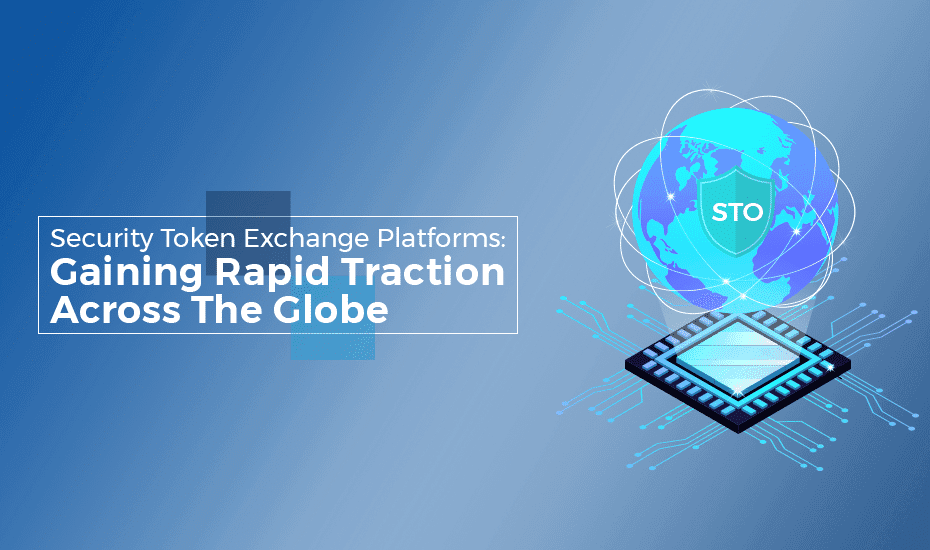Beginner’s Guide to Cryptocurrency Trading Bots in 2024
March 25, 2019How to Secure Cryptocurrency Exchange – From the Security Perspective
April 1, 2019Security has always been one of the major concerns for the cryptocurrency industry, which is why it is constantly improved and underpinned by new regulations. The U.S. Securities and Exchange Commission (SEC) made an announcement in mid-2018, stating that as most of the ICO projects were akin to securities, they need to adhere to SEC regulations. This sparked the emergence of regulatory compliant Security Token Offering (STO).
STOs provide a safe, legally-compliant way to connect blockchain with traditional financial system. Following the downfall of ICOs, STOs have started gathering momentum among service providers, financial institutions and regulators. Many cryptocurrency enthusiasts believe that one of the next big things in the cryptocurrency market could be expecting security tokens to become the eventual replacement for ICOs. While this expectation pivots around a number of key issues, there are some significant reasons why STOs could navigate the next wave of blockchain innovation.
Ownership of assets
The idea behind ICOs is to create a digital representation of a value, known as a token. Companies sell their tokens to investors worldwide, who utilize these tokens to access the company’s platforms once they are built. The problem is that utility tokens are not linked with any real-world asset and the investors do not own anything. On the contrary, security token offering development is driven by the idea of tokenizing real-world assets such as real estate, art, commodities, exclusive goods like collectible cars, coins and jewelry. Investors acquire fractional ownership in an asset and participate in a revenue share model.
Embedded compliance
The variation of rules and regulations with geography makes it challenging to impose security regulations on ICOs. Conversely, programmable nature of STOs facilitates regulation of security rules on security tokens with easy modifications in the code as per the location.
Complete traceability
Resting on blockchain – an immutable and globally accessible ledger, and approved by SEC, STOs are completely traceable. Security token offering development introduces transparency into the market, allowing anyone on the blockchain network to see who holds the coin in the market and for how long.
Credibility
Credibility is hard to earn and easy to lose. STOs tend to gain instant credibility, being fully compliant with SEC regulations. They are seen as a more trusted option by investors as compared to ICOs.
Economic Effects of Security Token Offerings
Tokenization of different real-world assets through an STO process brings forth benefits for cryptocurrency and traditional financial markets as well as their participants.
Institutional investors get:
- Access to regulatory compliant fundraising model
- Novel way to tokenize assets like real estate, automobiles, art, commodities, and more
Retail investors get:
- Access to assets such as real estate, venture capital funds, and more due to greater fractionalization
- Opportunity to put their money into bigger assets with smaller investment amounts
- Lower transaction fee due to blockchain’s low-cost model
Cryptocurrency enthusiasts get:
- A great way to trade their tokens via bank accounts or credit cards directly
- Wide gamut of investment opportunities
The road ahead for security token offerings
Despite the current bearish cryptocurrency ecosystem, STO market looks strong. It is rapidly acquiring investors’ interest by providing liquidity benefits for all types of assets. Security tokens make the market more transparent and accessible, allowing 24/7 instant trading unlike conventional security transactions that lack transparency and take a couple of days to settle.
Security token offering development supports fine-tuned customization. Features like KYC and transaction limits can be integrated directly into the assets. The security can also be addressed in multiple ways, like having non-voting rights or paying out specific percent of gross revenue to token holders as a dividend.
Security tokens pave the way for a vast new array of investment capabilities. Individual token holders could choose to sell off either a portion of their interest or the dividend of full equity in a secondary market. Brokers could gather sets of voting security tokens and sell them into international markets. Accumulation of shares could provide access to system benefits or constitute as a membership to a club. Companies existing within smart contracts on a blockchain could have governance mechanisms with the involvement of human shareholders who code voting preferences directly into the contract.
Besides, STOs could enable centralized exchanges like Nasdaq to leverage advantages of blockchain and create a direct avenue for institutional investors to the cryptocurrency market.
As security token offerings gain more traction, they are more likely to replace ICOs and navigate the shift to a legally-complaint ecosystem.



